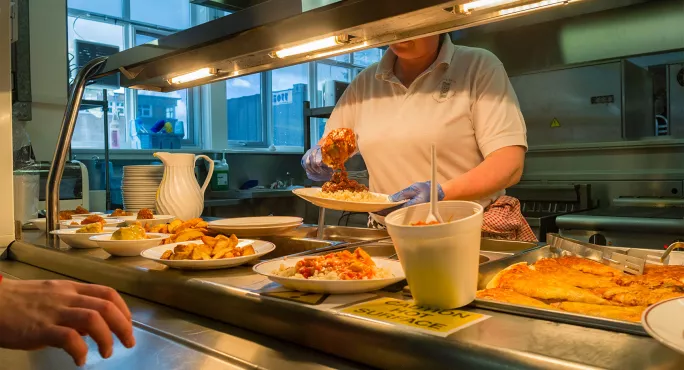Rate of FSM students going to university decreases for first time

Private school students in England are almost twice as likely as their state school peers to go to a more selective university, government figures show.
The latest Department for Education data shows private school A-level students had a 67.8 per cent progression rate to a more selective university by the age of 19 in 2022-23, compared with their peers in state schools who had a 34.2 per cent progression rate.
The gap between independent and state school students in England - 33.6 percentage points - is the widest it has been since 2017-18.
Data from the DfE also revealed the gap between poorer students and their more affluent peers attending university widened to the highest level recorded in 2022-23.
FSM student progression rate decreases for first time
In England, 29 per cent of state school students who received free school meals (FSM) at the age of 15 went to university in 2022-23 - down from 29.2 per cent in 2021-22.
The DfE said it is the first time the progression rate for FSM students has decreased since its widening participation data series began in 2005-6.
Meanwhile, nearly half (49.8 per cent) of students who did not receive FSM progressed to university in 2022-23.
The gap between these two groups attending university - 20.8 percentage points - is the largest in the data series, the DfE said.
- Background: Disadvantage gap has widened across all education phases
- KS2 Sats 2024: Disadvantage gap still bigger than before Covid
- Disadvantage: DfE ‘does not have a strategy’ for reducing disadvantage gap
The gap between disadvantaged and non-disadvantaged students entering more selective universities also widened to the highest level on record.
Overall, 6.1 per cent of FSM students progressed to high tariff institutions, including those in the Russell Group, by the age of 19 in 2022-23, compared with 16.8 per cent of those not eligible for FSMs.
The pandemic led to an increase in top grades in 2020 and 2021 after summer exams were cancelled and results were based on teacher assessments.
The DfE said that Covid-19 led to more students being accepted to higher education - and in particular to high tariff institutions - which “may explain the increased progression rates” in recent years.
The latest DfE analysis also reveals regional differences across England in the likelihood of going to university - FSM students in inner London were far more likely to progress to university compared with those in other regions.
The figures also showed the proportion of Black students progressing to university by the age of 19 fell from 63.5 per cent in 2021-22 to 62.4 per cent in 2022-23.
‘There are still many challenges’
Nick Harrison, chief executive of the Sutton Trust, said there was a big jump in higher education attendance over the pandemic, but the increase mainly came from students from more advantaged backgrounds.
He added that universities lacked access to data about applicants’ FSM eligibility and therefore “couldn’t effectively prioritise the poorest pupils in their admissions policies.”
A spokesperson for the Russell Group said the number of FSM students progressing to a high-tariff university reached a record high in 2022-23, and the number of students from the most under-represented areas going to Russell Group universities has increased by 35 per cent since 2019.
“However, as today’s new data shows, there are still many challenges,” the spokesperson said.
The Russell Group spokesperson added that its universities are committed to ensuring talented students from all backgrounds have the opportunity to access higher education and have put “bold” access and participation strategies in place.
Education secretary Bridget Phillipson said: “This data exposes entrenched inequalities that have been left to worsen year on year.”
She added that the gap in access to university between disadvantaged students and their peers is “appalling” and universities “must do more” to help disadvantaged students access higher education.
For the latest education news and analysis delivered every weekday morning, sign up for the Tes Daily newsletter
Keep reading for just £1 per month
You've reached your limit of free articles this month. Subscribe for £1 per month for three months and get:
- Unlimited access to all Tes magazine content
- Exclusive subscriber-only stories
- Award-winning email newsletters
topics in this article



